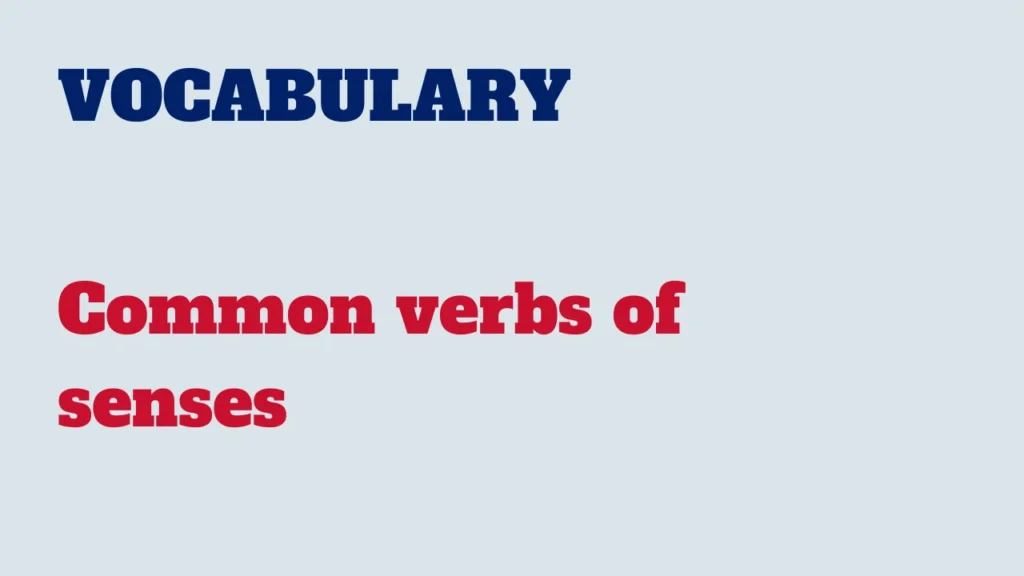Effective communication often involves articulating experiences and observations, and mastering common verbs of senses is essential for this purpose. Verbs of senses help convey information related to sight, sound, smell, taste, and touch.

Here are some frequently used verbs, each accompanied by a brief definition and example:
Common verbs of senses in English
- See:
- Definition: Perceive with the eyes.
- Example: I saw a beautiful sunset over the horizon.
- Hear:
- Definition: Perceive with the ears.
- Example: We could hear the distant sounds of laughter.
- Smell:
- Definition: Perceive odors through the nose.
- Example: Smelling the bakery’s aroma made my mouth water.
- Taste:
- Definition: Perceive flavors with the tongue.
- Example: She could taste the hint of cinnamon in the dish.
- Touch:
- Definition: Perceive through the sense of touch.
- Example: I touched the soft fabric to check its quality.
- Look:
- Definition: Direct gaze in a particular direction.
- Example: He looked at the painting with admiration.
- Listen:
- Definition: Pay attention to sounds.
- Example: They listened to the soothing melody of the music.
- Scent:
- Definition: Smell, especially a pleasant one.
- Example: She scented the flowers in the garden.
- Savor:
- Definition: Enjoy the taste or smell of something.
- Example: Take a moment to savor the rich flavor of the coffee.
- Feel:
- Definition: Perceive through the sense of touch or emotion.
- Example: The cold wind made them feel shivers down their spine.
- Watch:
- Definition: Observe with attention.
- Example: We decided to watch the sunrise from the hill.
- Perceive:
- Definition: Become aware or notice through the senses.
- Example: Some people can perceive subtle changes in their environment.
- Notice:
- Definition: Observe or become aware of something.
- Example: Did you notice the details in the artwork?
- Detect:
- Definition: Discover or identify something.
- Example: The security system can detect any movement in the area.
- Observe:
- Definition: Watch carefully or study.
- Example: Scientists observe the behavior of animals in their natural habitat.
By incorporating these verbs into your language repertoire, you’ll be better equipped to vividly describe sensory experiences. Stay tuned for more vocabulary lessons to elevate your English proficiency!
Learn English
Share this 👉 https://quickglish.net/dmdm



